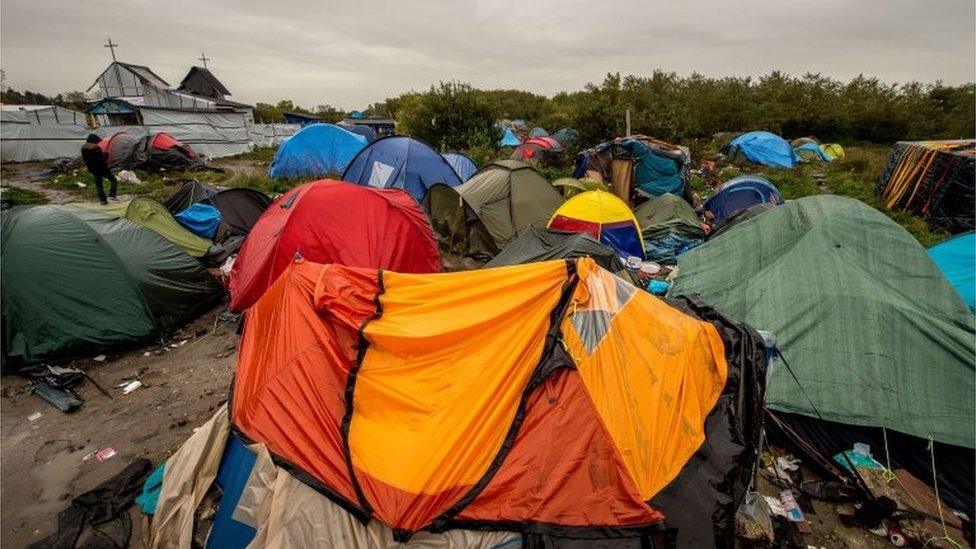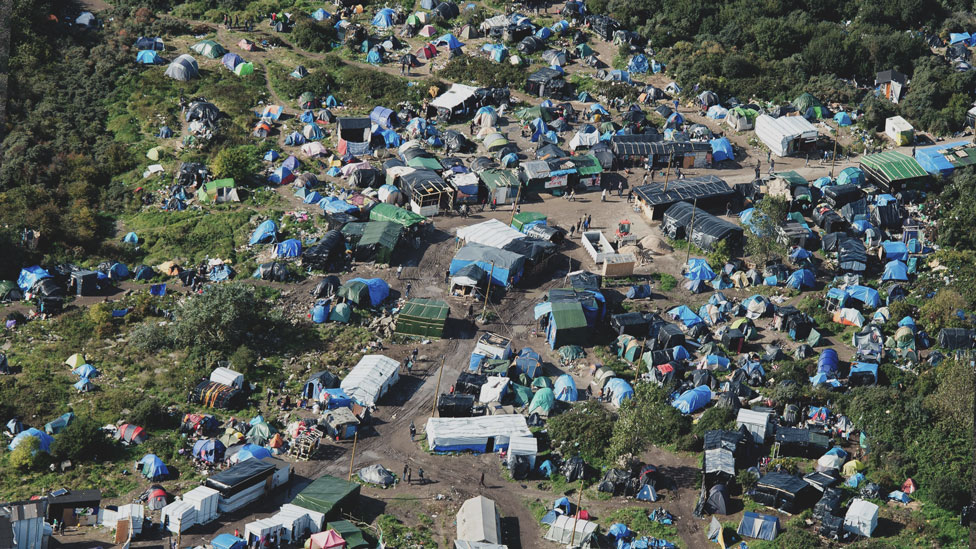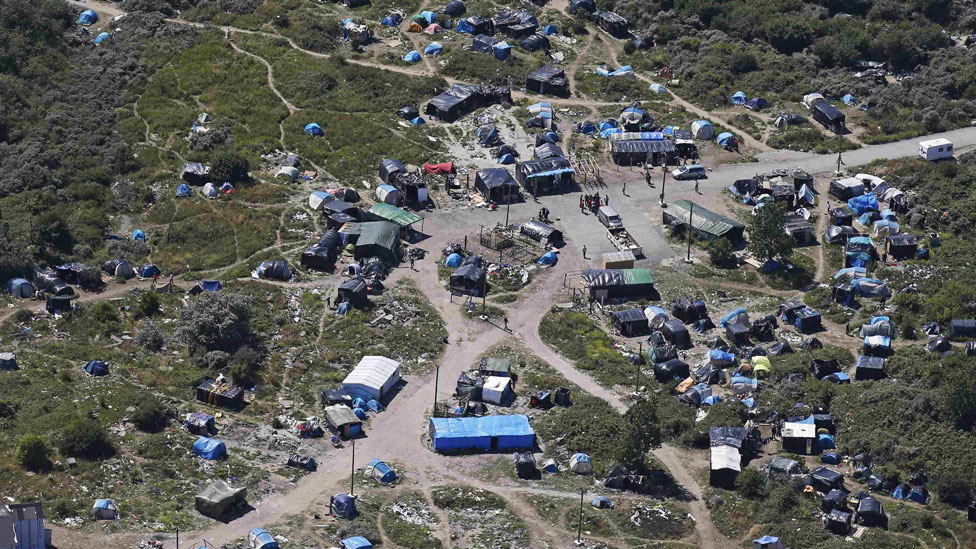Calais migrants to be given heated tents, as police numbers rise
- Published

The new tents will be given to women and children inside the "New Jungle" camp in Calais
Women and children at a migrant camp outside the French port city of Calais are to be given heated tents by the end of the week, officials say.
Interior Minister Bernard Cazeneuve said the measures were to protect some of the 6,000 people at the camp from cold temperatures as winter approaches.
Another 460 police officers are to be deployed there from Thursday, he added.
Numbers at the "New Jungle" camp have swelled in recent months, as the Europe migrant crisis has intensified.
Most of them have fled conflict and poverty in Africa, the Middle East and Afghanistan and are trying to seek refuge across the Channel in the UK.
Some people have opted for dangerous routes in their bid to make the crossing, with a number of deaths inside the Channel Tunnel in recent months.
Mr Cazeneuve announced the new measures on Wednesday after his seventh visit to the camp.
He said a centre sheltering women and children that currently has space for 200 people would allow in up to 400 by the end of the year.
"In the meantime, heated tents will be set up... by the end of the week," he told reporters, vowing that "no woman, no child will remain without a shelter in this city".
The French minister also confirmed that police numbers would go up from 665 to 1,125 to help manage security in the area.
Tighter security measures introduced at the Channel Tunnel's entrance in August have helped to slow down the number of illegal crossings to the UK in recent weeks, which at its peak reached 2,000 attempts per night.
Eurotunnel services were disrupted for a fourth consecutive day on Thursday after "intrusions" at its terminal in France.
Eurotunnel Chief Executive Jacques Gounon blamed lax security on the French rail network for allowing people to target its terminals.
"If I have only one concern, it is that the very efficient security we have on the Eurotunnel terminal does not exist on the SNCF part," he said.


EU response: EU solution seems nowhere in sight
No-man's land: Border closures leave thousands stranded
Long winter sets in: EU pins hope on deteriorating weather
Merkel under pressure: Chancellor's migrant policy faces criticism at home
Crisis in graphics: Migration numbers explained

Meanwhile, European Commission chief Jean-Claude Juncker has summoned European leaders to a special summit on Sunday to find a better strategy to manage the flow of migrants.
The European Commission said President Jean-Claude Juncker had called Sunday's meeting, external because "there is a need for much greater cooperation, more extensive consultation and immediate operational action" to deal with what it called "the unfolding emergency".
It comes amid growing tensions over border controls in the western Balkans where thousands of migrants have been pouring through in a bid to reach northern Europe.
On Wednesday, tents at a transit camp on Slovenia's border with Austria were allegedly set on fire by people angry over poor conditions, who complained of lack of food, water and blankets.
Thousands have been diverted through Slovenia on their way to western Europe after Hungary closed its border with Croatia and Serbia last week.
The International Organisation for Migration (IOM) says more than 650,000 migrants have reached Europe this year.

A note on terminology: The BBC uses the term migrant to refer to all people on the move who have yet to complete the legal process of claiming asylum. This group includes people fleeing war-torn countries such as Syria, who are likely to be granted refugee status, as well as people who are seeking jobs and better lives, who governments are likely to rule are economic migrants.

